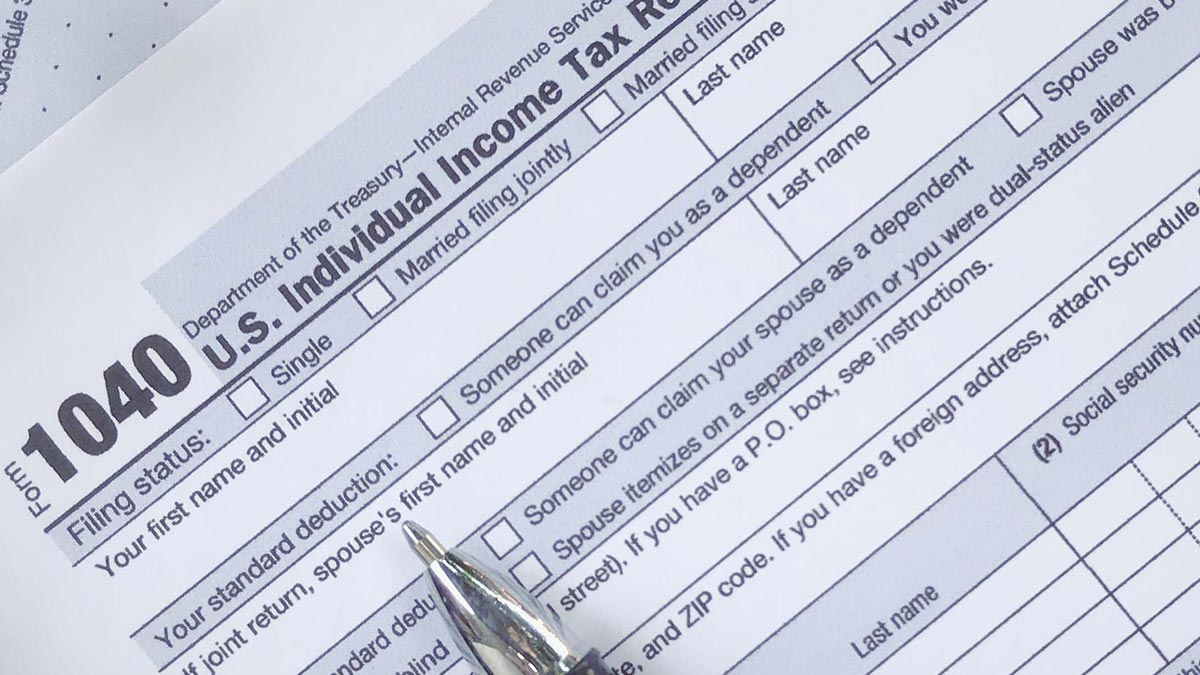
Key takeaways
A few of the biggest changes enacted by the TCJA include an increase in the standard deduction, adjustments to itemized deductions, and an increase in the lifetime gift and estate tax exemption.
The Tax Cuts and Jobs Act expiration will happen at the end of 2025, meaning tax provisions will return to what they were prior to the TCJA unless Congress passes new legislation.
You should meet with your financial professional now to make sure your tax plan is up to date before the tax sunset in 2025.
Passed in 2017, the Tax Cuts and Jobs Act (TCJA) made several significant changes to the tax code that affected tax planning for millions of Americans. But many of these changes weren’t permanent: Unless Congress takes further action, the legislation will sunset (or expire) at the end of 2025, and the tax provisions will revert to where they were before the legislation passed.
While this might seem like a long way off, it’s not that far away from a tax-planning perspective, notes Daniel Willing, Senior Wealth Strategist with U.S. Bank Private Wealth Management.
“Now is the time to start planning for the potential sunset of the Tax Cuts and Jobs Act,” he says. “If this happens, taxes may increase for many households.”
The TCJA’s provisions fall into three broad categories: individual income taxes, corporate income taxes, and estate and gift taxes. Here’s a look at potential changes in each of these areas if the legislation expires.
TCJA sunset: Individual income tax changes
The Tax Cuts and Jobs Act lowered individual tax brackets across the board. In the case of a TCJA expiration, the tax brackets will revert to where they were pre-legislation:
|
Current marginal tax rate |
Potential new marginal tax rate |
|---|---|
|
12% |
15% |
|
22% |
25% |
|
24% |
28% |
|
32% |
33% |
|
35% |
35% |
|
37% |
39.6% |
Current marginal tax rate
Potential new marginal tax rate
12%
15%
22%
25%
24%
28%
32%
33%
35%
35%
37%
39.6%
One strategy to consider in preparation for these potentially higher marginal tax rates is maximizing tax-advantaged investments in your retirement accounts and health savings accounts (HSAs).
“Also consider whether investing in a Roth IRA now could help you capitalize on the current lower tax brackets,” says Willing. “You might also accelerate income for years prior to 2026 to take advantage of the lower marginal tax rates.”
Here are a few other potential changes to individual income taxes if the TCJA sunsets:
- Lower standard deduction: The TCJA significantly increased the standard deduction, which has resulted in fewer taxpayers itemizing deductions on their federal income tax return. If the legislation expires, the standard deduction will be cut nearly in half:
|
Filing status |
2025 |
2026 (approx.) |
|---|---|---|
|
Single |
$15,000 |
$8,300 |
|
Married filing jointly |
$30,000 |
$16,600 |
Filing status
Single
2025
$15,000
2026 (approx.)
$8,300
Filing status
Married filing jointly
2025
$30,000
2026 (approx.)
$16,600
“If the standard deduction is lowered, it might make sense to itemize deductions on your federal income tax return,” says Willing. “You should review this with a tax professional to determine what’s right for you.”
- Elimination of SALT cap: The TCJA created a cap of $10,000 for state and local tax (SALT) deductions, which resulted in higher taxes for many high-income households who live in high-tax states. If the legislation expires, the SALT cap will also expire. “This could lower taxes for certain households and individuals who live in high-tax states and itemize deductions,” says Willing.
- Changes to child tax credit and personal exemptions: The child tax credit will be cut in half from $2,000 to $1,000 per child if the TCJA expires. However, personal exemptions of $2,000 per individual (phased out at higher income levels) will return.
- Expansion of the alternative minimum tax (AMT): Due to TCJA changes, the AMT currently only affects several thousand taxpayers in the entire country. If the legislation expires, this could expand exponentially to approximately 6.7 million taxpayers nationwide.
TCJA sunset: Corporate income tax changes
The Tax Cuts and Jobs Act permanently lowered the federal top corporate income tax rate from 35% to 21% and repealed the corporate AMT. It also created a new deduction for pass-through entities (such as S corporations, partnerships and sole proprietorships) that allows these businesses to deduct up to 20% of qualified business income (QBI) on their federal income tax return if their income is below a certain threshold.
While the lower corporate income tax rate is permanent, the QBI deduction isn’t: It will expire at the end of 2025 unless Congress acts before then.
“This could change the equation when determining whether to organize a business as a pass-through entity or C corporation,” says Willing. “Owners of pass-through entities should talk to their tax advisor about whether it makes sense to retain this structure or consider a C corporation.”
TCJA sunset: Gift and estate tax changes
The Tax Cuts and Jobs Act essentially doubled the federal lifetime gift and estate tax exemption, which in 2025 is $13.99 million for individuals and $27.98 million for married couples filing jointly. This has enabled wealthy families to transfer assets up to this amount out of their estates, lowering the value of their estate and transfer taxes on heirs.
If the tax sunset 2025 happens, the exemption will revert to the pre-TCJA level, adjusted for inflation. This could be around $7 million for individuals and $14 million for married couples – or about half the current amount. The top estate tax rate is 40% on the value of estates that exceeds the exemption amount.
Willing says this drastic drop in the gift and estate tax exemption could potentially have the biggest impact of the TCJA expiration on affluent and high-net-worth families.
“It’s critical for these families to start preparing now in case the estate tax exemption is cut in half, because it can take a long time to implement estate planning strategies,” he says. “Also, estate planning attorneys will probably be in high demand next year, so it may be difficult to find one who has time to work with you.”
Start preparing now for the Tax Cuts and Jobs Act expiration
The potential TCJA expiration is closer than it might appear. Talk to a financial professional about how you can best prepare and make sure your financial goals remain on track.
Learn how we can help you design a plan to grow and protect your wealth.


